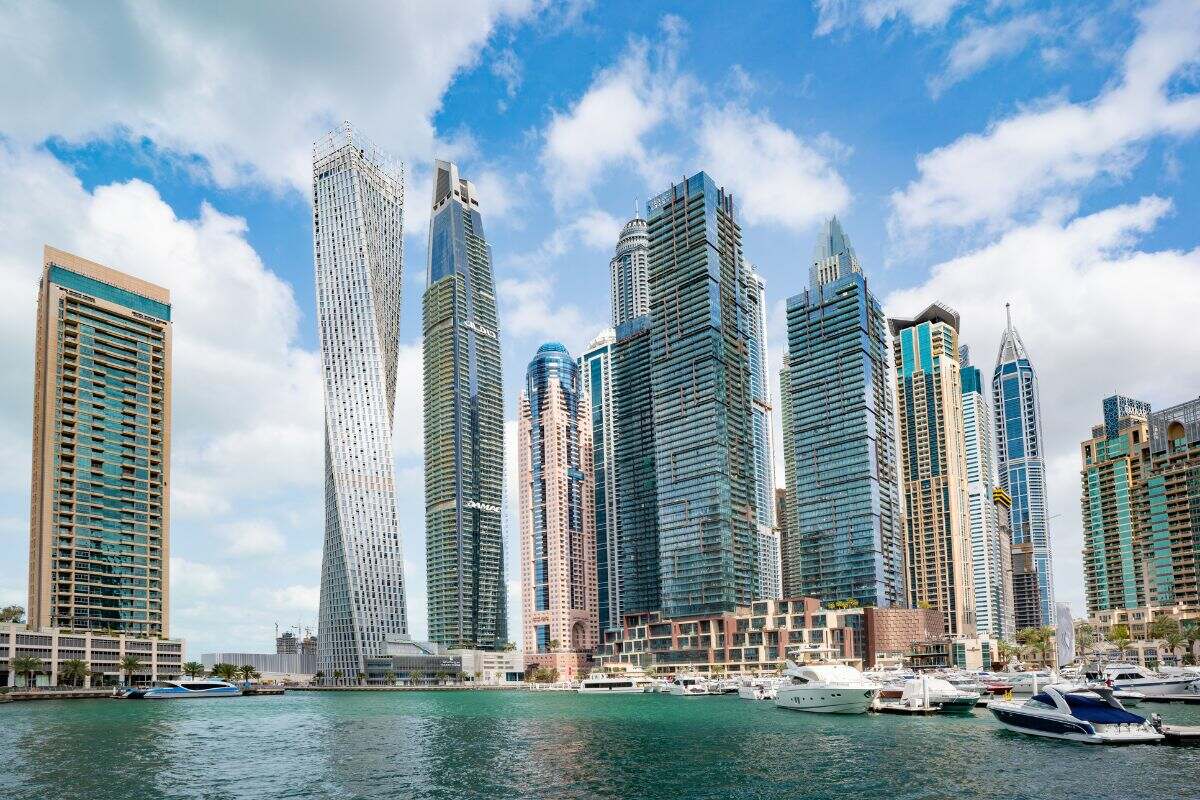
Dubai, a city known for its extraordinary architectural achievements and towering skyscrapers, stands as a global symbol of prosperity and progress. At the core of this incredible development lies a robust system of real estate laws. In this guide, we aim to provide a comprehensive overview of Dubai’s real estate legal landscape, catering to potential buyers, investors, and current property owners.
Understanding Real Estate Laws
Real estate laws refer to the regulations and rules that govern property ownership, transfers, and transactions. In Dubai, where real estate is inseparable from the emirate’s identity, these laws play a crucial role in ensuring transparent, secure, and equitable property dealings, ultimately fostering confidence among investors.
The Role of Dubai Land Department (DLD)
Dubai’s real estate laws and regulations have been instrumental in propelling the city’s rapid growth, providing an investor-friendly environment. Dubai offers different property ownership options for foreigners, including freehold and leasehold arrangements within designated zones. The Dubai Land Department (DLD) oversees these property transactions to ensure fairness and legality.
In recent years, regulations have been reinforced to safeguard the interests of both buyers and sellers. The introduction of escrow accounts for off-plan property sales, for instance, guarantees that your funds are secure until the property is completed. Additionally, the establishment of the Real Estate Regulatory Agency (RERA) monitors the industry’s operations and enforces compliance with the rules.
Dubai also implements strata laws, which are designed to manage properties with multiple owners, such as those in buildings or communities. These laws establish clear guidelines for property management and ownership in such situations.
Dubai’s real estate market remains alluring for investors, but it is crucial to stay updated with the evolving rules and regulations to thrive in this dynamic and competitive environment. Adhering to these laws ensures a secure and prosperous real estate experience in the city.
Different Types of Real Estate Laws
Residential Real Estate Laws in Dubai: These laws focus on safeguarding the rights of tenants and outlining the responsibilities of landlords. They cover various aspects, including rent caps, eviction procedures, maintenance obligations, and more.
Commercial Real Estate Laws: Commercial property transactions in Dubai are subject to a distinct set of regulations. These rules address issues such as lease agreements, lease durations, and considerations specific to business-related facilities.
Real Estate Development Laws: Development laws set the standards for property development and construction. They encompass environmental regulations, safety standards, and guidelines for land use planning.
Key Components of Dubai’s Real Estate Laws
Property Ownership: Ownership laws in Dubai delineate the types of property rights available to buyers, and understanding elements like title deeds and property transfer procedures is vital.
Contracts and Agreements: Contracts are the cornerstone of real estate transactions, encapsulating all terms and conditions of the sale and purchase, becoming legally binding upon signing.
Regulations and Zoning: Zoning laws have a significant impact on land usage and property development decisions, specifying what can be constructed in particular areas.
Financing and Mortgages: Mortgage laws offer protection to both lenders and borrowers, defining lending terms, foreclosure procedures, and borrower safeguards.
Dispute Resolution: Real estate disputes can occur, and knowledge of available mechanisms for mediation, arbitration, and litigation is crucial for swift issue resolution.
Real Estate Laws Across Jurisdictions
While Dubai’s real estate laws provide a foundation, variations exist based on the country or region. Familiarizing yourself with local legal nuances can prevent potential legal complications.
Recent Updates and Changes
Dubai’s real estate legal landscape is dynamic, with recent changes including initiatives to attract foreign investors, offering extended visa durations to property buyers, and more. Staying informed ensures compliance and smarter investment decisions.
Common Legal Challenges in Real Estate
From discrepancies in property titles to valuation issues and contractual disputes, numerous challenges may arise in real estate transactions. Being informed and proactive is the best strategy to navigate these issues effectively.
The Vital Role of Legal Professionals in Dubai’s Real Estate
The hiring of experienced real estate attorneys or agents is far from a mere formality; it can be the linchpin differentiating between a smooth transaction and a potential legal quagmire.
Ensuring Compliance and Due Diligence
Due diligence stands as the safeguard against lurking legal pitfalls. Guaranteeing adherence to all pertinent laws offers investors protection from unexpected challenges.
Dubai’s real estate sector remains in the global spotlight, and the bedrock of its real estate laws ensures that this allure translates into secure and fruitful investments. Whether you’re a first-time buyer or a seasoned investor, comprehending these laws and enlisting legal counsel can transform your property journey into a seamless and rewarding experience.
Property Ownership Rules for Foreigners
Dubai’s real estate market offers a unique set of regulations for foreign nationals, or expatriates, interested in property ownership. Understanding these rules is crucial for a successful investment in this dynamic city.
1. Freehold and Leasehold Zones:
Foreign nationals have the opportunity to acquire property in designated freehold areas. These zones were intentionally opened to promote foreign investment in Dubai’s real estate market.
In freehold areas, expatriates enjoy full ownership rights, allowing them to buy, sell, lease, and inherit properties without constraints. Notable freehold areas include Dubai Marina, Downtown Dubai, and Palm Jumeirah.
2. Leasehold Areas:
In areas that are not categorized as freehold, foreign nationals can still own property under a leasehold arrangement.
This entails purchasing the right to use the property for a specified period, often 99 years, which can be renewed upon expiration. Leasehold arrangements provide security for long-term investments.
3. Residency Visa:
One significant advantage of property ownership in Dubai for foreign nationals is the opportunity to apply for a residency visa. Property owners can request a residency visa, which permits them to live and work in Dubai. The property’s value typically determines eligibility for such visas, with specific thresholds defined by the government.
4. Mortgage Financing:
Dubai extends the option for foreign nationals to secure mortgages from local and international banks to facilitate property purchases. This accessibility to mortgage financing streamlines the process for expatriates seeking to invest in Dubai’s real estate market.
Understanding these regulations and the various options available to foreign nationals is key to making informed and successful property investments in Dubai.
The Buyer’s Roadmap
Purchasing property in Dubai involves a well-defined process to ensure that your investment is both legally secure and financially sensible. Here’s a step-by-step breakdown of what to expect when buying property in this vibrant city:
1. Property Selection: Begin by selecting a property that best suits your needs and preferences. Ensure that the chosen property is legally sound and aligns with your budget. Discover Dubai’s outstanding projects
2. Agreement Documents: Once you’ve identified your dream property, you’ll proceed to sign either a Memorandum of Understanding (MoU) or a Sale and Purchase Agreement (SPA). These documents detail essential information, including the property price and payment schedule.
3. Financing: If you require financial assistance to acquire the property, you can explore mortgage options from a bank to facilitate your purchase.
4. No Objection Certificate (NOC): Both you, as the buyer, and the seller are required to obtain a No Objection Certificate (NOC) from the Dubai Land Department. This certificate is essential to verify if there are any legal issues or outstanding fees associated with the property.
5. Property Transfer: The actual transfer of the property takes place at the Dubai Land Department, where you or your representatives will meet with the seller. At this stage, you’ll need to make the payment for the purchase price, along with any associated fees, using a manager’s check. Once this process is completed, the property’s title deed is officially transferred to your name, marking you as the new owner.
6. Registration: To ensure that the property is fully functional, you will need to register it with the Dubai Electricity and Water Authority (DEWA). If the property is residential, you may also need to obtain a housing permit from the relevant authorities.
7. Professional Guidance: Throughout this entire process, it’s advisable to engage a qualified real estate agent who can provide guidance, ensuring that every step is carried out correctly and in full compliance with the law.
Navigating Dubai’s Real Estate Landscape
After delving into the enchanting world of Dubai’s real estate, one thing becomes abundantly clear – this city is a realm teeming with boundless opportunities. Whether you’re envisioning a lavish home or pursuing a shrewd investment, Dubai offers it all.
Picture this: the awe-inspiring Burj Khalifa piercing the sky, the grace of Palm Jumeirah, the vibrant vitality of Downtown Dubai, and the diverse Dubai communities. Dubai’s real estate scene seamlessly weaves together timeless traditions and futuristic innovations, creating a veritable treasure trove for property enthusiasts.
What’s even better? Dubai extends a warm welcome to both its residents and expatriates. The regulations are accommodating, assuring the safety of your investments. From seamless property transfers to robust mechanisms for resolving disputes, Dubai has your back. Moreover, the absence of property taxes and the vigilant governance create a nurturing environment for homeowners and investors alike.
Therefore, whether you’re embarking on a quest for your dream home or setting your sights on the perfect investment, Dubai’s real estate market is an adventure waiting to be embraced. It’s not just bricks and mortar; it’s a journey brimming with limitless possibilities.




